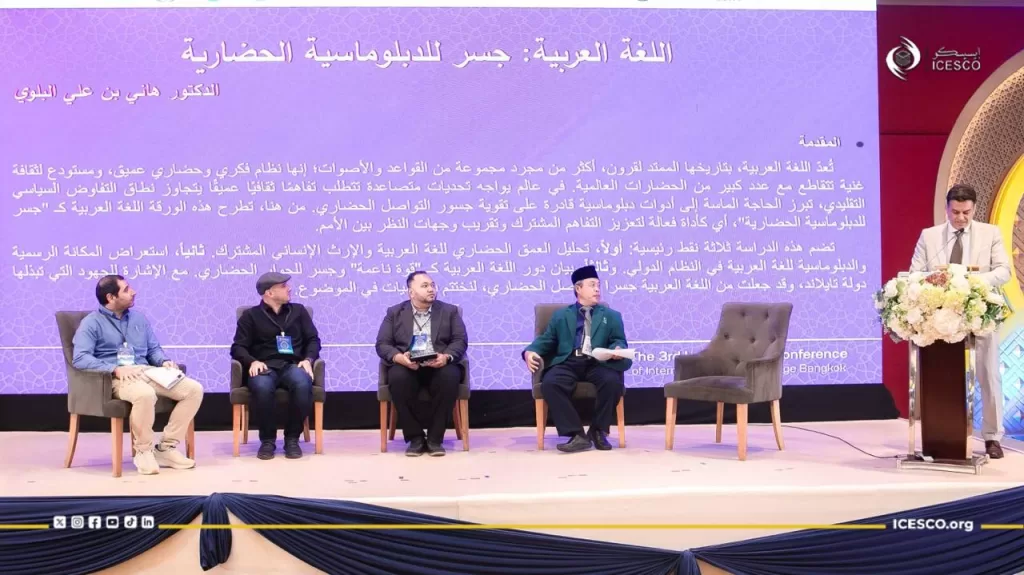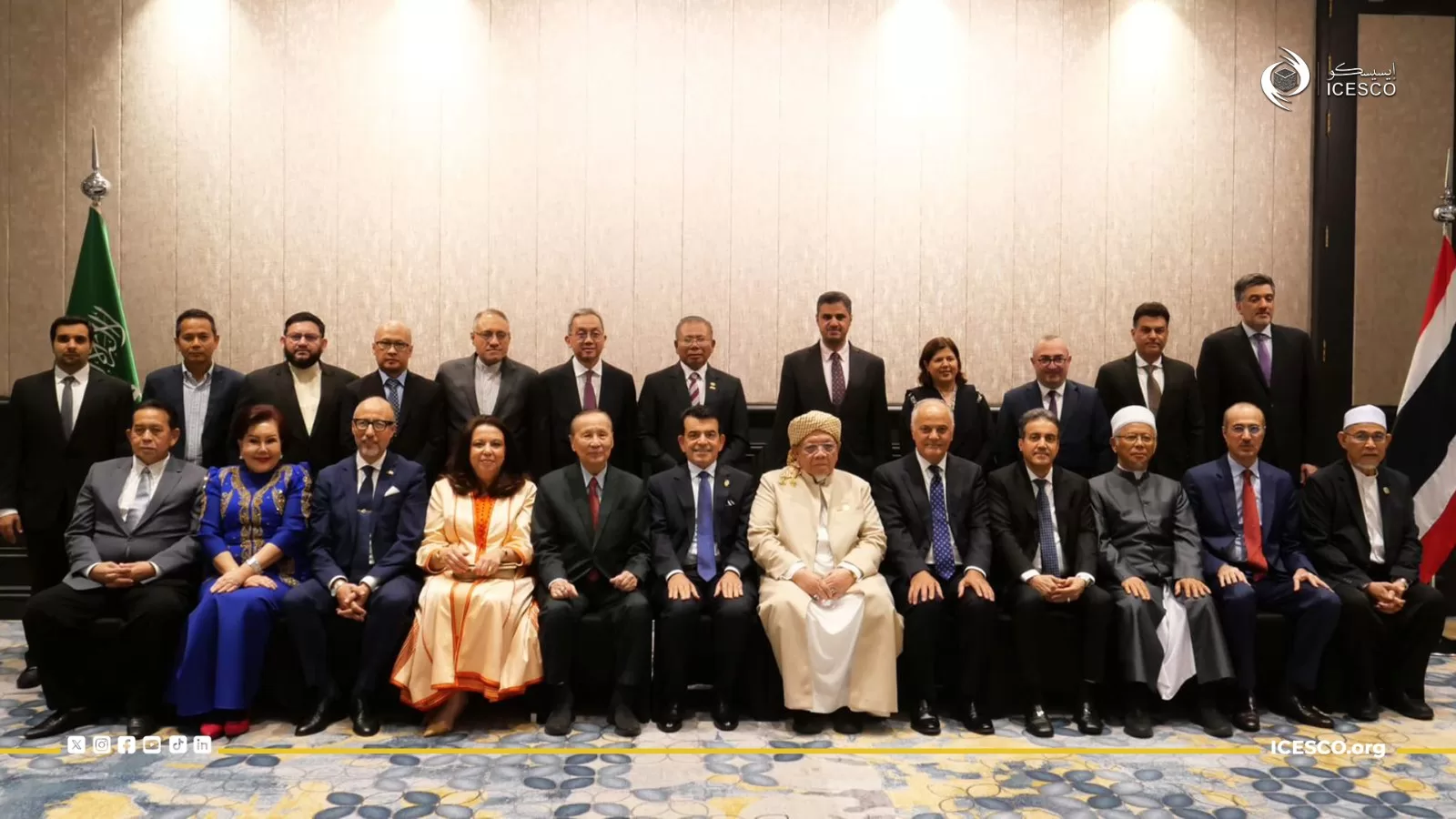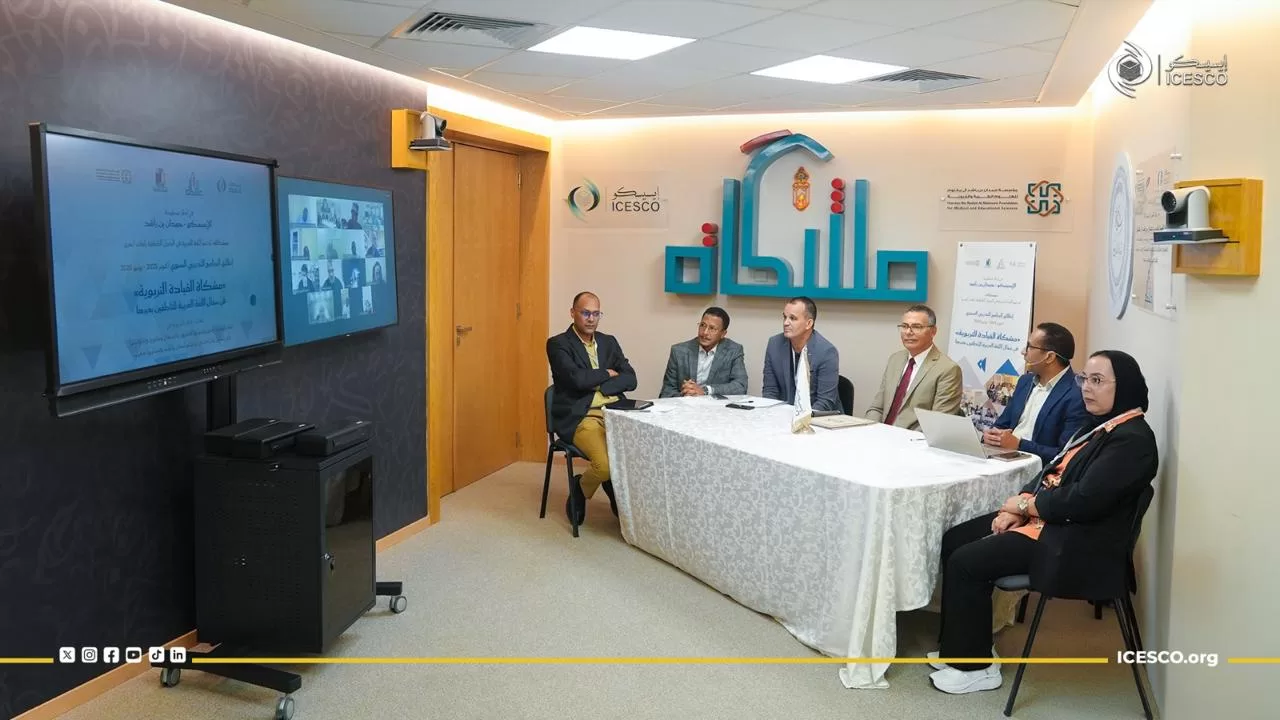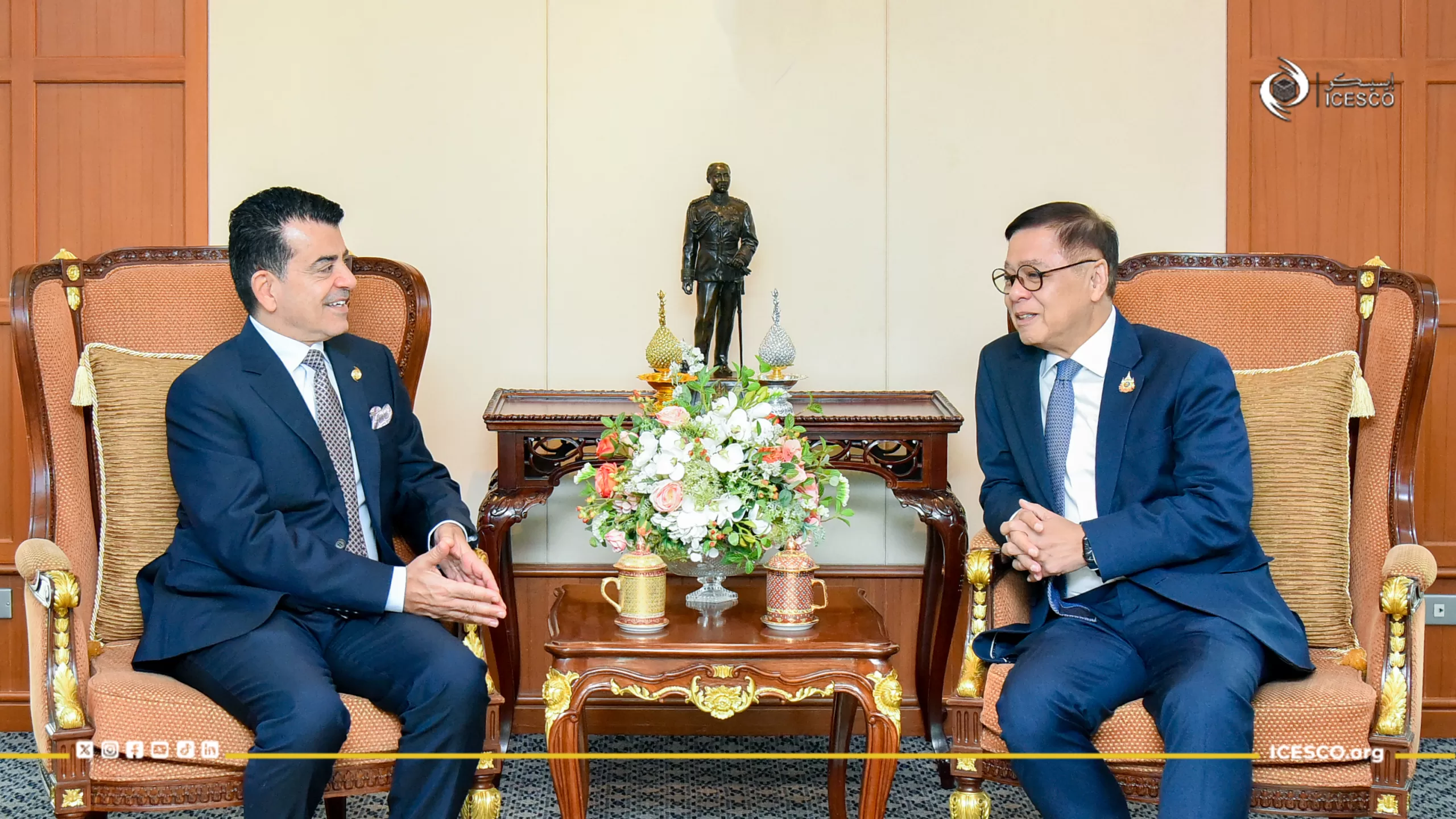
In international conference in Thailand… ICESCO DG: We strive to enhance international status of Arabic

10 October 2025
Dr. Salim AlMalik, Director-General of the Islamic World Educational, Scientific and Cultural Organization (ICESCO), affirmed that the Organization places the Arabic language and the enhancement of its international status at the forefront of its priorities. He noted that ICESCO is implementing high-quality programs and projects, including work on the “Unified Reference Framework for the Arabic language in teaching, learning, and assessment.,” in cooperation with international institutions. ICESCO is also preparing global reports on the status of Arabic as a second language and is working to launch artificial intelligence projects to develop Arabic language models (LLMs).
This was part of his keynote speech as Guest of Honor at the opening of the third international conference titled “the Arabic Language in the Modern Era: Literacy Opportunities and Challenges,” held on Thursday, October 9, 2025, in Bangkok, co-organized by ICESCO and Krirk University, the Wasatiyyah Institute under the Office of Chularatchamontri (Sheikhul Islam of Thailand), and the International Islamic University Malaysia. The conference witnessed high-level attendance from ministers, senior officials, ambassadors, and university presidents, led by H.E. Mrs. Sabida Thaiseth, Minister of Culture of the Kingdom of Thailand, who attended on behalf of the Prime Minister.
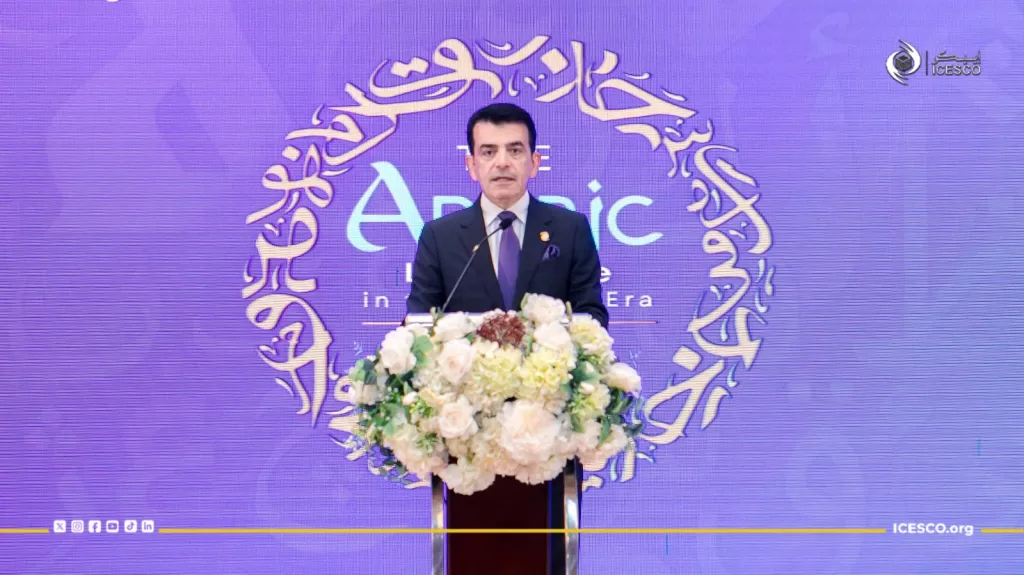
Dr. AlMalik highlighted the distinguished status of the Arabic language among world languages thanks to its uniqueness and rich vocabulary, describing it as the language of miracles, science, and thought. He emphasized its divine honor when the Holy Qur’an was revealed in clear Arabic.
He stated that Arabic has remained resilient against colonial attempts to weaken it, recognizing that language is not merely spoken words but a comprehensive system of thought, creativity, and identity, pointing out that current challenges, especially the weakness of Arabic digital content, which barely exceeds 1% of global content, require intensive efforts from all institutions concerned, calling for enriching Arabic content by keeping pace with the demands and developments of the modern era.
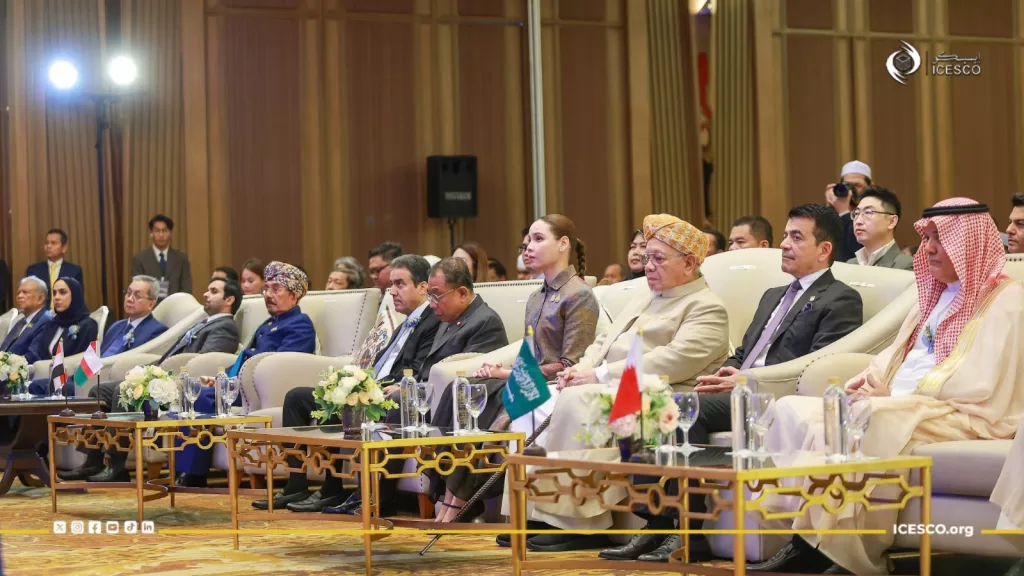
Dr. AlMalik presented a set of recommendations to enhance the international status of Arabic, including linguistic scientific research encouragement, especially in applied and computational linguistics, offering opportunities to study in Arab universities for non-Arab students to become ambassadors of the Arabic language, and allocating the necessary budgets to implement ambitious Arabic language projects.
Additionally, Dr. Hani Al Balawi, expert at ICESCO’s Center for Civilizational Dialogue, participated in a conference session titled “Arabic Language: A Bridge for Civilizational Diplomacy.” He delivered a presentation on the civilizational depth of Arabic and reviewed ICESCO’s efforts, in cooperation with the Kingdom of Thailand, to make Arabic a bridge for civilizational dialogue and a tool for promoting values of tolerance and peaceful coexistence.
